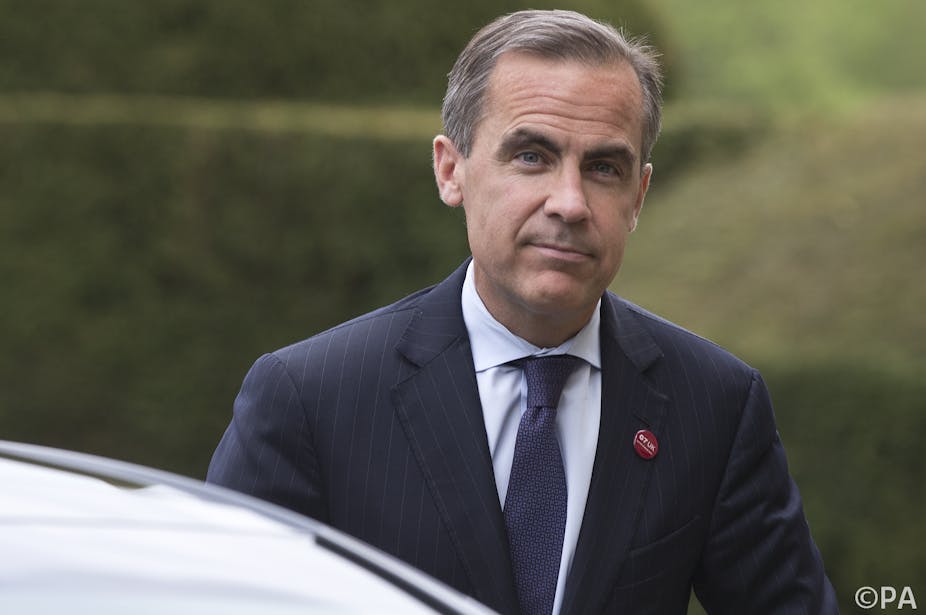Like many Canadians to achieve high office in his country over the past half-century, Mark Carney came from an ordinary, middle-class background. And like his two immediate predecessors as governor of the Bank of Canada he had a PhD in Economics (Oxford).
But Carney was the first central bank governor in modern times to have extensive previous private sector experience: he worked for Goldman Sachs for 14 years in investment banking.
This deep understanding of private capital and currency markets provided Carney with a solid grasp of the 2008 banking crisis. He intervened much more quickly than other central bankers, as he understood the origins and meaning of the crisis sooner and much more deeply.
Now the British government hopes that one of the stars of world banking will put that experience to play on the other side of the Atlantic. For today Carney becomes the first foreigner to lead the Bank of England since its establishment 318 years ago.
The challenge ahead may be of an altogether different magnitude than that left behind. For despite Carney’s undoubted skills he had some luck in the hand he was dealt.
Well managed
Canada’s banking system was and is one of the most heavily regulated and well managed in the world. It did not experience any of the bank failures seen in the US or UK. Carney also had the benefit of a significant resource sector that provides a cushion to the Canadian economy in the shape of reasonably stable export revenues.
Successive Canadian governments had also made important and difficult restructuring decisions that injected greater resilience into the Canadian economy. The introduction of the North American Free Trade Agreement, the adoption of a VAT and the elimination of a large structural deficit are all examples of such moves, as were tax, pension and employment insurance reform.
But Carney had some tricks up his own sleeve. Shortly after his appointment in February 2008, he slashed interest rates more rapidly and in larger increments than ever before. Most importantly, in April 2008 he introduced the practice of “forward guidance”: publicly providing markets with a “conditional commitment with an explicit date”. This gave markets fixed periods of time during which they could expect the rate to remain place.
In addition to these large scale innovations, Carney also delivered speeches to ordinary Canadians in smaller communities in the “hinterland”, such as Regina, Yellowknife, Winnipeg and Charlottetown, areas not traditionally well known to central bankers.
His rock star image developed because he understood that central bankers can no longer speak exclusively in “econo-geek” before fellow highly-educated nerdy economists in Toronto, London or New York. Carney understood that a central bank governor must generate support for the strategic objectives of the central bank by speaking to ordinary Canadians in ordinary cities in ordinary English. This was revolutionary for a central banker and the antithesis of American Alan Greenspan at the Federal Reserve.
Will Carney’s experiences transfer successfully to the Bank of England? He has both personal and institutional advantages and disadvantages. As an outsider, he has no baggage and is beholden to no one in the UK.
But as the man from the northern remote town of Fort Smith__ in the North West Territories in the Canadian Arctic, he certainly is not a member of the cosy club on Threadneedle Street.
This could work in his favour, as the British financial establishment has, in the words of my late British father, “blotted its copybook” with a series of critical mistakes before, during and after the financial crisis.
Four critical factors
In his numerous speeches over the past five years, Carney provided a deeper understanding into his thinking, which was summarised succinctly in his last speech on May 21, “Canada Works”. Carney argued that the success of a modern developed nation requires a responsible fiscal policy, sound monetary policy, a single and resilient financial system and a monetary union that works.
This represents the antithesis of what he now faces in the UK, which could be summarised as “the UK does not work, and neither does Europe”. After five years of eurozone failure due to the complete absence of the four critical factors Carney identified at home, we now can understand the formidable task he faces.
Properly understood, asking if Mark Carney will be successful is to ask if the UK – and the EU – can be reformed. We can only hope.

